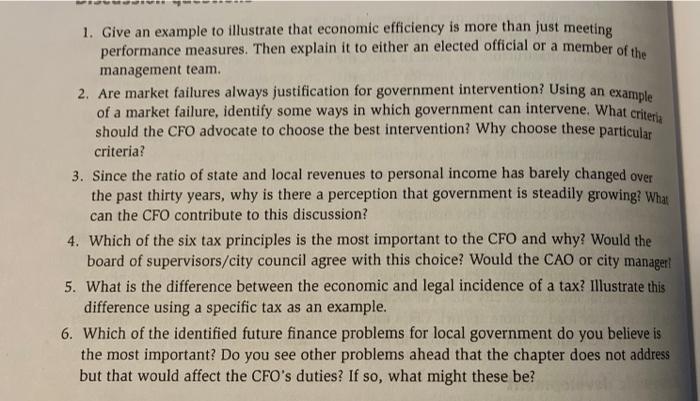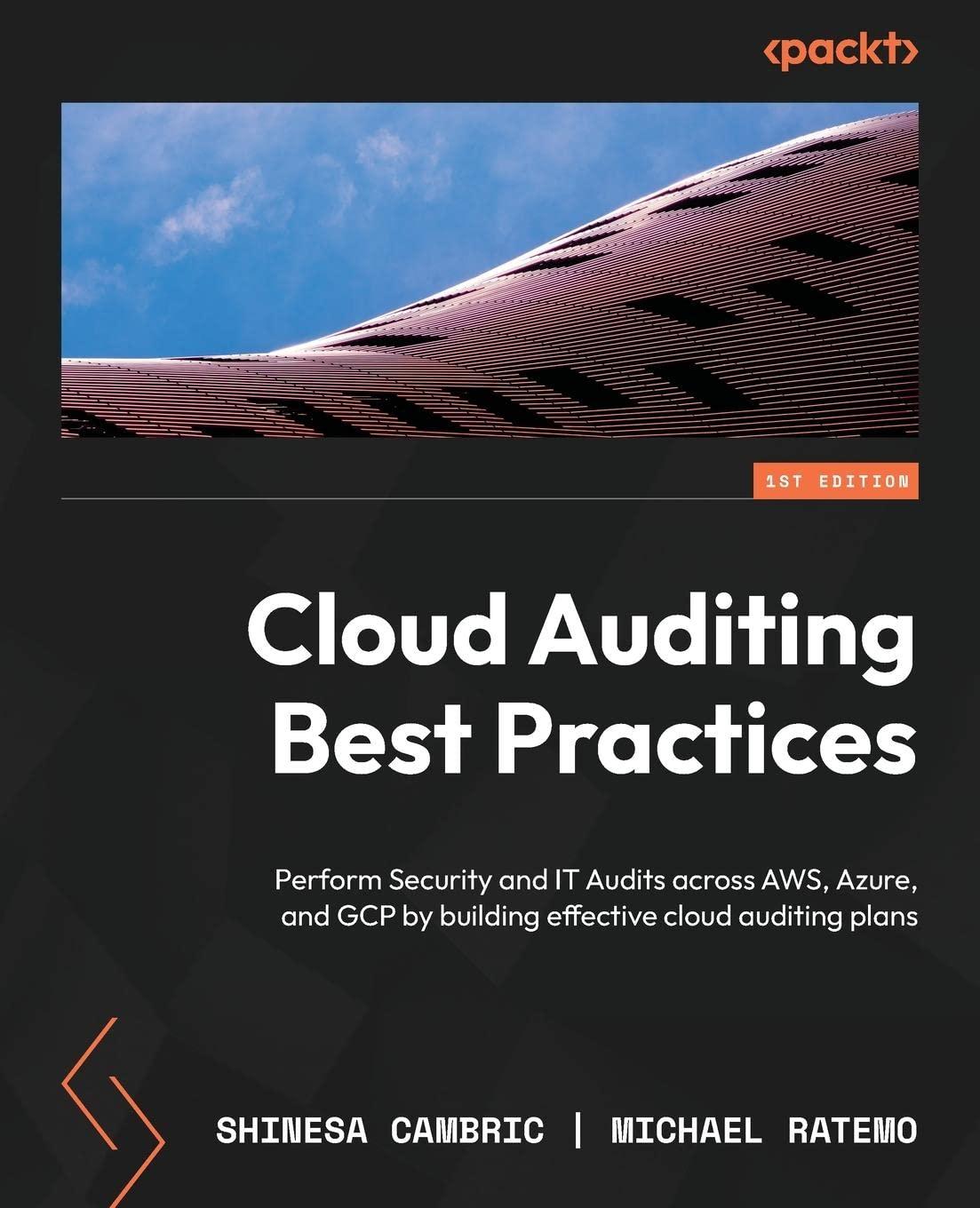1. Give an example to illustrate that economic efficiency is more than just meeting performance measures. Then explain it to either an elected official or a member of the management team. 2. Are market failures always justification for government intervention? Using an example of a market failure, identify some ways in which government can intervene. What criteria should the CFO advocate to choose the best intervention? Why choose these particular criteria? 3. Since the ratio of state and local revenues to personal income has barely changed over the past thirty years, why is there a perception that government is steadily growing? What can the CFO contribute to this discussion? 4. Which of the six tax principles is the most important to the CFO and why? Would the board of supervisors/city council agree with this choice? Would the CAO or city manager! 5. What is the difference between the economic and legal incidence of a tax? Illustrate this difference using a specific tax as an example. 6. Which of the identified future finance problems for local government do you believe is the most important? Do you see other problems ahead that the chapter does not address but that would affect the CFO's duties? If so, what might these be? 1. Give an example to illustrate that economic efficiency is more than just meeting performance measures. Then explain it to either an elected official or a member of the management team. 2. Are market failures always justification for government intervention? Using an example of a market failure, identify some ways in which government can intervene. What criteria should the CFO advocate to choose the best intervention? Why choose these particular criteria? 3. Since the ratio of state and local revenues to personal income has barely changed over the past thirty years, why is there a perception that government is steadily growing? What can the CFO contribute to this discussion? 4. Which of the six tax principles is the most important to the CFO and why? Would the board of supervisors/city council agree with this choice? Would the CAO or city manager! 5. What is the difference between the economic and legal incidence of a tax? Illustrate this difference using a specific tax as an example. 6. Which of the identified future finance problems for local government do you believe is the most important? Do you see other problems ahead that the chapter does not address but that would affect the CFO's duties? If so, what might these be







